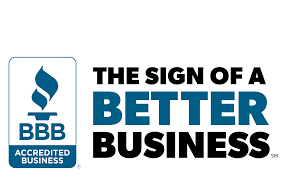Worst-Case Scenarios: When the Reserves Won’t Cover It
July 5, 2023

New Jersey has had its share of hurricanes and weather disasters over the years, and while sometimes there’s ample warning before something calamitous happens, that’s not always the case. A bad situation can be made immeasurably worse when a building or association isn’t economically solvent enough to weather an emergency, or when insurance coverage doesn’t actually cover the ensuing damages.
Budgeting for the Bad
Any financially solvent condo or HOA community has both an operating budget to cover the day-to-day expenses associated with running the community, and a reserve fund that’s intended to pay for larger repairs and capital improvement projects. Still, you can’t plan for everything and not having enough funds in an emergency can be the downfall of most building communities. 
It’s not just the weather that can cause concern. A hypothetical emergency could be anything from flooding without having proper flood coverage to fraud or malfeasance on the part of a board member, to massive legal bills because of a board member acting in bad faith and coming out on the wrong side of litigation. That’s why having a plan for such emergencies is vital for any condo or HOA.
Other situations that may land a residential common interest community such as a co-op, condo or HOA in financial jeopardy include major capital projects that weren’t funded appropriately, being over-leveraged in terms of debt as a result of having borrowed too much, an increase in interest rates and a failure to pay down debt, or an unrealistic operating budget based on the board’s fear of instituting an increase in maintenance/common charges.
Martin Laderman, president of mem Property Managementl, handling property management, says that in his 20 years in the industry, he has never seen a co-op or condo go bankrupt, although some have come alarmingly close. “The development-owned condos were the ones most impacted by the economy,” he says. “It falls short when it cannot collect and have delinquency issues with its unit owners, and that goes for both condos and co-ops.” To combat this, an association or condo may raise owners’ fees on an annual basis, or try and get financing to help pay the bills.
Another option is to reduce services. Lester says when fees become difficult for unit owners, something has to give. “If you can’t raise revenue, you must cut costs.”
Don’t Rely on Reserves
By definition, an emergency is something that comes at you fast, with limited warning ahead of time. A building can be condemned because of a steam-pipe explosion; a condo devastated by hurricane damage can be determined unstable by a building inspector, with residents having only hours to pack up their stuff and leave. Even moderate structural damage can be an enormous expense that requires immediate attention—and according to Lester, reserves are not the place to look for funding to set things right in these situations.
“In New Jersey, it’s very common for communities to have replacement reserve funds. There’s no such a thing as a free lunch. The only place the money is coming from is the unit owners. It’s pay me now, or pay me later,”
Most professionals will tell you that using reserves for emergencies is a bad precedent to set. “Dipping into reserves is a slippery slope,” says Karen Sackstein, CPA at The Condo Queens in Fair Lawn. “You really have to have a plan for repayment, so a lot of the times it’s just kicking the can down the road. Most associations have very tight budgets as it is. It’s pushing off the inevitable. Whether they’re way over normal on their snow removal,” she says, or on track you have to properly plan for contingencies. “It’s a lot easier for people to swallow a special assessment. Everybody knew what was going on.”







Leave a Reply